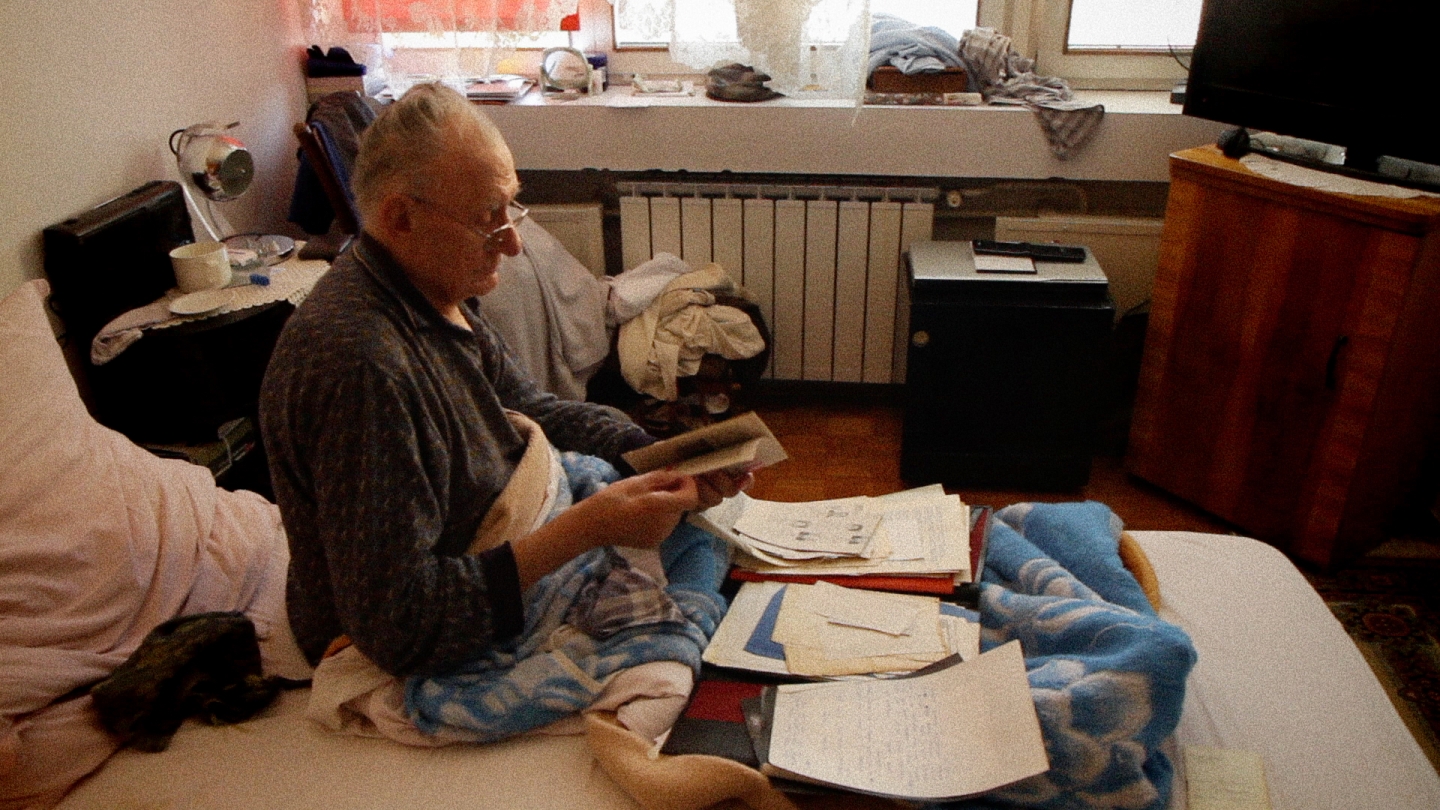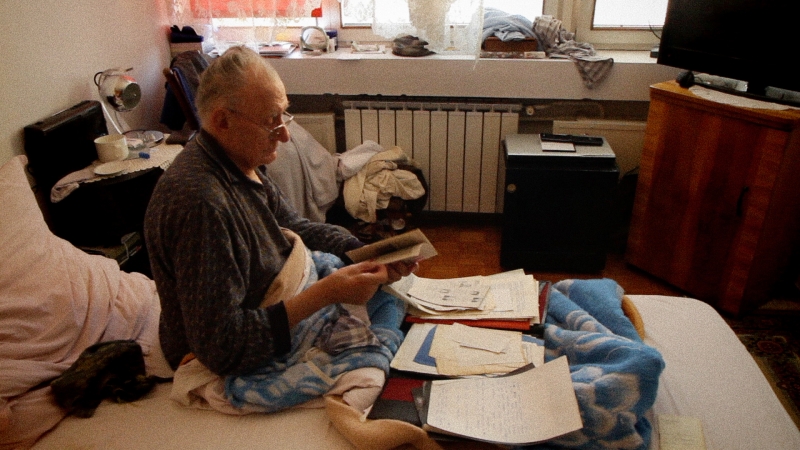
By: Paula Navratil
Filmed over a 15 year period, Bojan Bodružić’s The Museum of Forgotten Triumphs documents the life of his grandparents through their own words and memories. Like conversations we all wish to have with our ancestors, this film threads together stories from the everyday with memories of the devastation of war.
Through home videos and overseas interviews, Bodružić, a Vancouverite, shares the stories of a life lived elsewhere in history and circumstance. The Bosnian War torn apart families, while people survived and continued on to tell tales; this film is a gift of storytelling of everyday life in extraordinary circumstances.
We were excited to get the chance to the film’s Vancouver based director Bojan Bodružić for some insight into this amazing story and his storytelling journey.
Paula Navratil: I read that this movie collects 15 years of stories from your grandparents: what methods were used to collect these stories and did these change through the process as you realize you wanted to shape them into a film? How did you know that this story would evolve into a film?
Bojan Bodružić: I started working on this project when I was twenty, right after my second year of film school. From the very beginning, I wanted to make a film that considered the collapse of the former Yugoslavia and the way the consequent war affected Bosnia-Herzegovina.
My grandparents’ lives were obviously a big part of that story, but the initial scope of the film was much wider. At first, due to the wide-ranging and unwieldy nature of the material I collected, I held off from starting editing, thinking always that I needed to do more filming, which only got me further and further away from my goals. However, as my grandparents got older and started to face illness, I decided that they were really the heart of the film and I started to zero in on their story; it was only then that the film, such as it is today, really started to take shape.
Since all this took such a long time, I naturally changed as a person as I made the film. I finished both my undergraduate and graduate degrees during that time, started to teach film production, made a number of other films, etc…all of this, along with changing technologies, changed the way—formally speaking—the material was shot. And yet, though there’s variety, I’m actually surprised at how harmoniously the material seems to have come together.
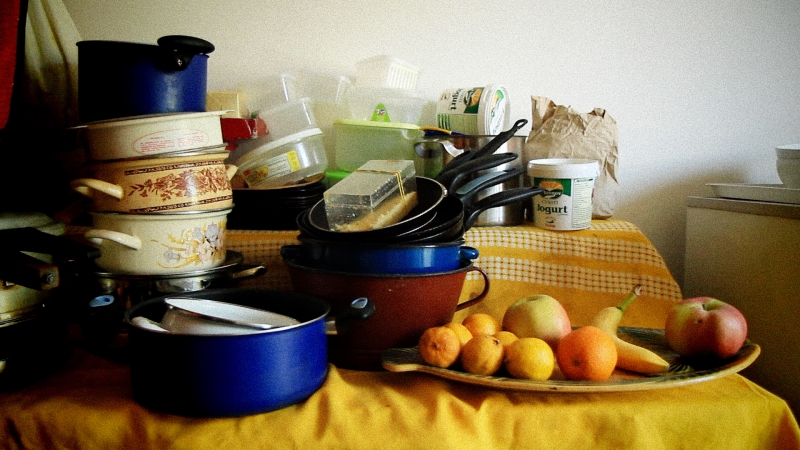
PN: What was your relationship with your grandparents? Did you meet them in person through the course of your/their lives? Or was the meeting in the trailer the first face to face?
BB: I was born in Sarajevo in 1980 and lived there until early 1992, when the war started. During that time, my grandparents were a big part of my life. Then, in 1992, my sister and I were evacuated from Sarajevo, while my parents and grandparents stayed behind in the besieged city.
My mom left the city first, and two years later my dad managed to leave as well. After we were reunited, we came to Canada. The scene in the teaser when I first meet my grandparents marked a reunion after an eight-year-long separation. They’d last seen me as a young boy and I was now coming back as a fully grown man.
PN: What was your relationship with Sarajevo and how did it impact this film?
BL: My relationship to Sarajevo is complex. I was torn from it—and from my life—suddenly, without warning, at a difficult age. It was a traumatic event. I dreamt of the city for years, imagining what it might be like to return, what the city might look like after sustaining so much war damage, what it might be like to talk to old friends and family again… I remember seeing the British film ‘Welcome to Sarajevo’ sometime in 1998 and breaking into tears in the movie theatre as I saw images of the city—images from my childhood—unfold before my eyes.
Then in 2000, I finally managed to find enough money and time to go back, and I stayed there all summer. That was the year I started working on this film, and the most meaningful time I ever spent in the city. Then, over the years, I changed, the city changed, and while I still absolutely love it, I’ve started feeling a vague sense of distance. Promises of better days have gone unfulfilled, people continue to flee the country, my friends there have grown bitter…
These days, the two principal things that keep me connected to the city are the few friends who still live there and the graves of the loved ones. Sometimes however, quite randomly, say just walking down a street in Vancouver, I’ll get some kind of a flash, a vague image or smell of Sarajevo, almost as if I were glimpsing it through a tear in space-time continuum, and emotions will flood back and I’ll want to be there right at that very moment. The last time I was there was in 2015, to finish work on this film, but I’m sure I’ll make it back before long. As for the city’s impact on my film—well, it’s there, my dear Sarajevo, imprinted into the film’s very DNA.
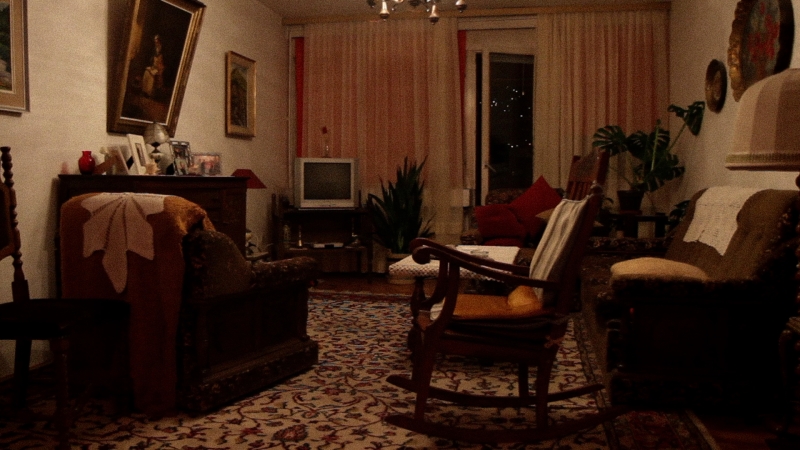
PN: In your short film Pirandello you speak of a particular style of filming/acting/storytelling. How would you describe this? Do you use a similar style in this new film?
BB: ‘Pirandello’ is a kind of meta-film that reflects on itself and teases the boundaries between documentary and fiction. At its core, it is very much a fictional, scripted piece that just happens to feature these added overtones of documentary reality. This new film is almost the opposite. It is very much a documentary film, but as it unfolds, its structure gradually starts to take on the rhythms and the feel of something like a narrative film.
PN: If you were able to show the audience one more piece to this story, what would you have liked to further dive into?
BB: My grandfather had a very difficult childhood, which led to him joining the resistance and becoming a decorated WW II fighter—the list of his various valorous deeds is much longer than what is discussed in the film. The initial interview with my grandfather covering all this ran for several hours. After many weeks and months of work, I managed to cut it down to just about an hour. I feel like that hour deserves a film all its own! However, due to the constraints of the narrative, only about five minutes or so made it into this particular cut of the film. Heartbreaking, perhaps, but necessary.
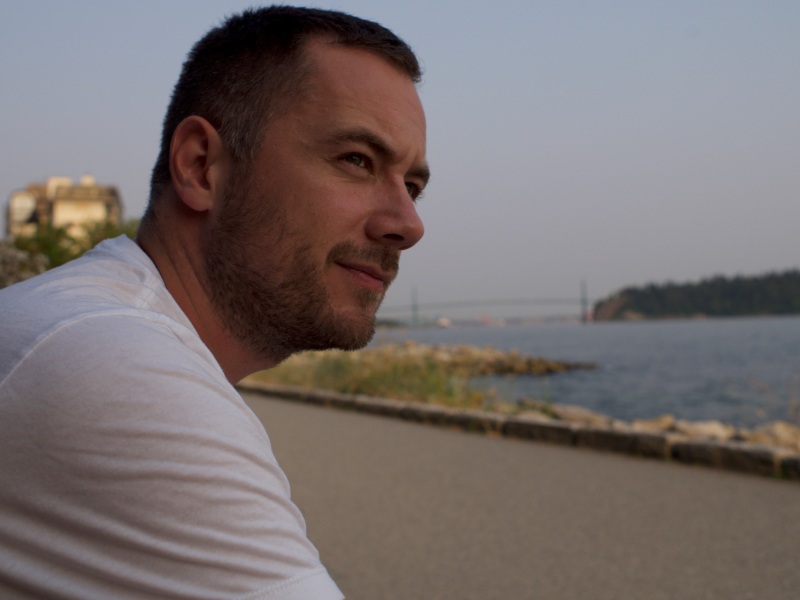
The Museum of Forgotten Triumphs
When: October 10, 2018 at 12:45pm
Where: International Village 8 – 88 West Pender St, Vancouver BC
Cost: $13
